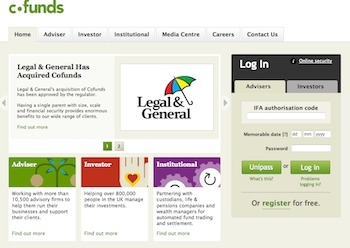Many advisers remain sceptical about offering a self-directed service to their clients alongside their current proposition, a survey suggests, after finding less than 10% are looking to add one.
Research by Cofunds showed 84% of advisers don't currently offer such a service. The figure was relatively unchanged from a study a year ago.
Less than one in ten (9%) of advisers surveyed were looking at adding a self-directed service.
Firms offering a self directed service allow clients to build their own online investment portfolio to suit their personal objectives. It is usually conducted primarily via a website – either the firm's own or a third party platform – but may also involve contact with the adviser by email or phone to deal with technical questions. It may also include online tutorials or educational videos and recommended fund lists.
Two thirds of advisers who took part in the study said they had no plans to introduce this type of service in the future.
{desktop}{/desktop}{mobile}{/mobile}
Andy Coleman, director of distribution at Cofunds, said the findings revealed that a lot of advisers were either unaware or unconvinced of the benefits.
He expressed concerns they could be missing out on a "cost-effective way" to cater for clients that don't currently need full advice or aren't prepared to pay for it, but who could be in need of advice in the future.
Mr Coleman said: "Time limitations, financial constraints and not having the infrastructure are likely to be the key factors at play here.
"Many advisers will instead be focused on ensuring service commitments to fee-paying clients are met and new regulatory requirements are being implemented, and not see this as an opportunity.
"Yet the cost benefits are clear, and as investors continue to become more confident and tech-savvy, we're likely to see the self-directed area become an increasingly important part of an advisers' core proposition

